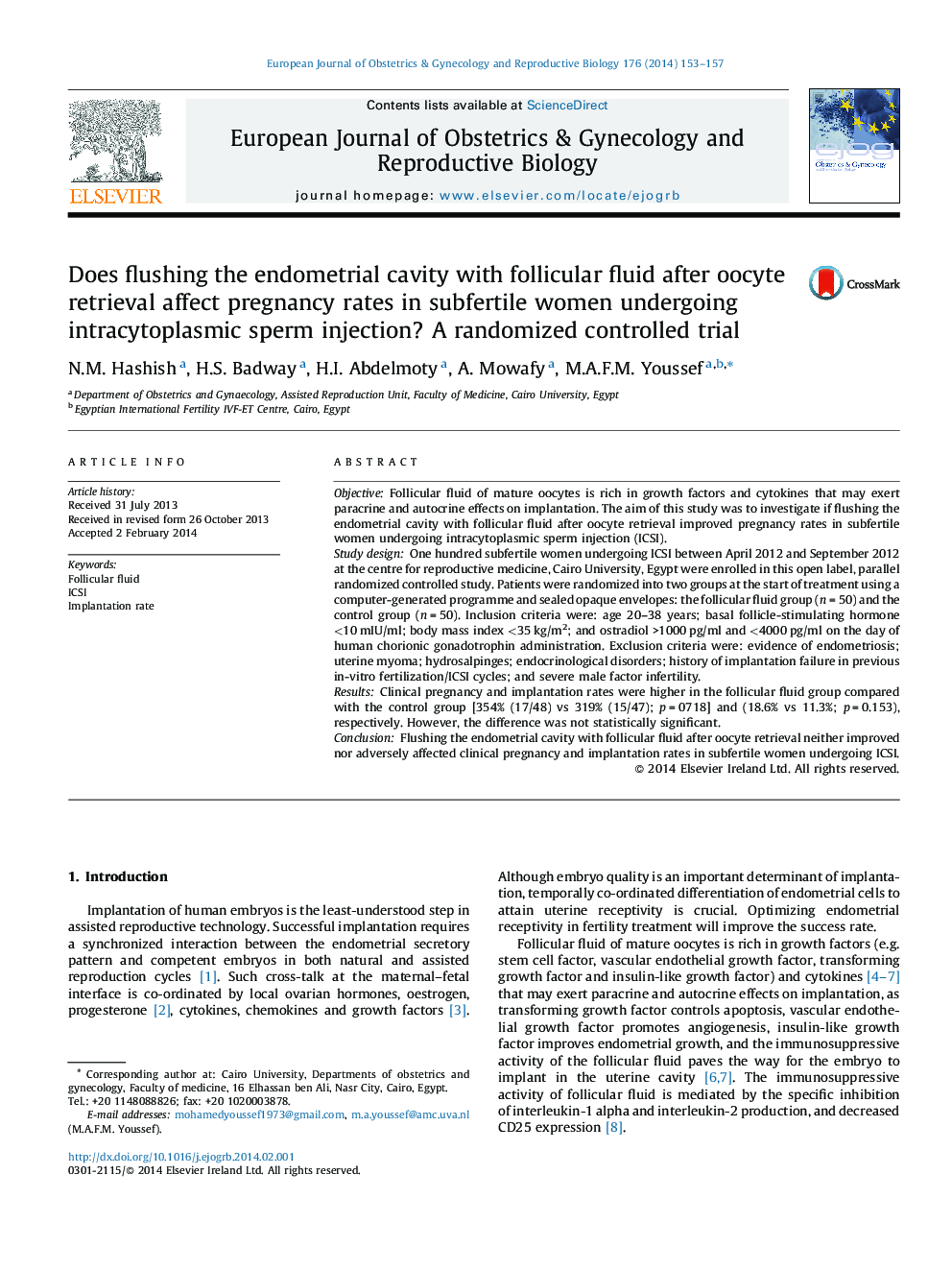| Article ID | Journal | Published Year | Pages | File Type |
|---|---|---|---|---|
| 3920083 | European Journal of Obstetrics & Gynecology and Reproductive Biology | 2014 | 5 Pages |
ObjectiveFollicular fluid of mature oocytes is rich in growth factors and cytokines that may exert paracrine and autocrine effects on implantation. The aim of this study was to investigate if flushing the endometrial cavity with follicular fluid after oocyte retrieval improved pregnancy rates in subfertile women undergoing intracytoplasmic sperm injection (ICSI).Study designOne hundred subfertile women undergoing ICSI between April 2012 and September 2012 at the centre for reproductive medicine, Cairo University, Egypt were enrolled in this open label, parallel randomized controlled study. Patients were randomized into two groups at the start of treatment using a computer-generated programme and sealed opaque envelopes: the follicular fluid group (n = 50) and the control group (n = 50). Inclusion criteria were: age 20–38 years; basal follicle-stimulating hormone <10 mIU/ml; body mass index <35 kg/m2; and ostradiol >1000 pg/ml and <4000 pg/ml on the day of human chorionic gonadotrophin administration. Exclusion criteria were: evidence of endometriosis; uterine myoma; hydrosalpinges; endocrinological disorders; history of implantation failure in previous in-vitro fertilization/ICSI cycles; and severe male factor infertility.ResultsClinical pregnancy and implantation rates were higher in the follicular fluid group compared with the control group [354% (17/48) vs 319% (15/47); p = 0718] and (18.6% vs 11.3%; p = 0.153), respectively. However, the difference was not statistically significant.ConclusionFlushing the endometrial cavity with follicular fluid after oocyte retrieval neither improved nor adversely affected clinical pregnancy and implantation rates in subfertile women undergoing ICSI.
